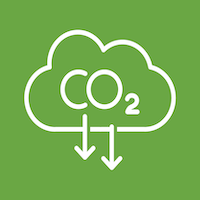HVAC Strategies
Cold-Climate Heat Pumps: Dos and Don’ts
Monday, April 17, 2023
8:30 AM - 10:00 AM
Location: Elwa B (Hyatt Level 5)
CEU Hours 1.5
CEU Type(s): NATE, ASHI, BPI, INTERNACHI, NARI
.jpg)
Jon Harrod (he/him/his)
Project Manager
Halco
Ithaca, New York
Inverter-driven heat pump systems are becoming more common as heating/cooling/hot water solutions in homes; in part due to their easy installation, flexible application, high efficiency, and the policy push to eliminate fossil fuels and electrify our homes. Additionally, the development of truly “cold-climate” heat pumps has allowed for this technology to be installed in regions previously unthinkable; becoming a viable alternative to LPG, natural gas, and oil heating systems. While seemingly simple to install, these systems are unforgiving in many ways. When done wrong, these systems suffer from shortened system life, poor efficiency, and comfort issues as well as the callbacks and unhappy customers that accompany these issues.
This session will present lessons learned from the installation of hundreds of systems, what works and what doesn’t. We will delve into system sizing, design considerations, installation techniques, and customer expectations; all from the perspective of what actually yields the best results from both the homeowner and performance perspectives. By carefully considering the topics covered in this presentation, we have greatly reduced our callbacks and are now installing much higher-performing and comfortable systems.
This session will present lessons learned from the installation of hundreds of systems, what works and what doesn’t. We will delve into system sizing, design considerations, installation techniques, and customer expectations; all from the perspective of what actually yields the best results from both the homeowner and performance perspectives. By carefully considering the topics covered in this presentation, we have greatly reduced our callbacks and are now installing much higher-performing and comfortable systems.
Learning Objectives:
By attending this session, attendees will:
- Describe the basics of inverter heat pump operation and their application in cold climates
- List key considerations and flexibility in sizing, equipment selection, and layout
- Explain specific installation techniques and tricks for installing heat pumps, including refrigerant leak prevention, condensate handling, and protection of the equipment from storm damage

